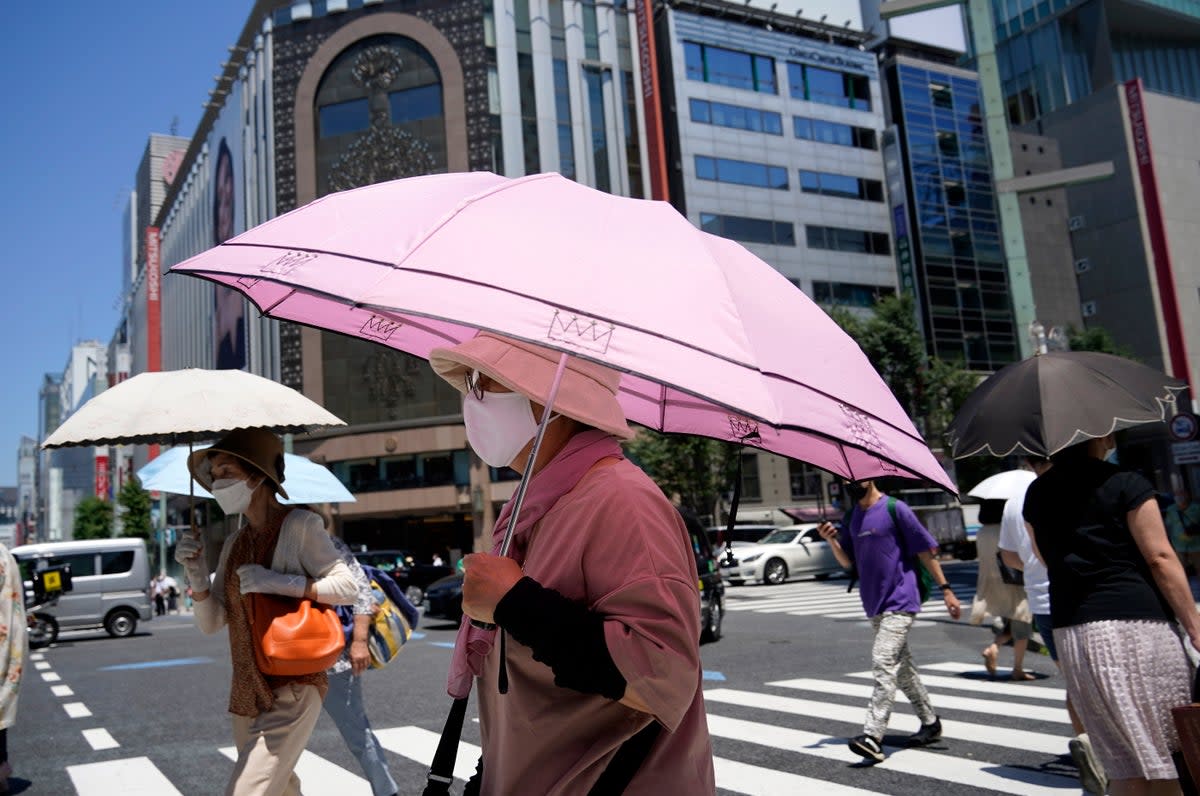Japan to use nuclear reactors to meet electricity demand as heatwave rages on

Japan’s nuclear reactors will be put to use to meet rising electricity demand, the country’s prime minister Fumio Kishida has said as the public suffers the worst heatwave it has seen in 150 years.
The Japanese government had earlier urged businesses and homes in Tokyo to curb the usage of electricity as the capital city’s 37-million population faces soaring temperatures that are predicted to go as high as 40C in the coming days – the worst June heatwave since records began in 1875.
The country’s meteorological department forecast also said temperatures won’t drop back to 30C until 5 July.
This in turn has resulted in a surge in electricity usage, even as people were told to turn off lights for three hours in the afternoon and ration the usage of air conditioning due to the rising power shortage.
Prime minister Fumio Kishida said on Tuesday that four nuclear reactors that have already been granted approval to resume operations would be pressed into action to their capabilities amid the energy crisis, according to South China Morning Post.
His government has been pushing to restart nuclear reactors that have passed upgraded safety standards.
He added that two fossil fuel power plants are due to restart in the coming weeks after upgrades and scheduled checks. He said his government “will leave nothing to chance when it comes to the power supply this summer”.
Japan’s power supply had reduced after it had stopped the usage of its nuclear reactors following the 2011 Fukushima nuclear meltdown.
The country also faces a potential shortage of fossil fuel due to shuttered old coal plants and a lack of imports amid sanctions against Russia over its invasion of Ukraine.
“Please save as much power as possible, such as by turning off lights that are not in use,” the country’s ministry of economy, trade and industry had implored people, asking them to use air conditioning “appropriately” in order to prevent heatstrokes.
Citizens living in the region serviced by the Tokyo Electric Power company have been urged to conserve electricity in the afternoon, especially when demand peaks between 4-5pm.
According to the country’s power grid monitor, Tokyo’s power-reserve ratios – which measure the spare electricity capacity – will drop below the 3 per cent level, considered the minimum for a stable grid.
“The electricity demand and supply situation is expected to be the toughest in the last three days (of this week),” an industry ministry official was quoted by Reuters as saying.
Power companies in Japan, meanwhile, are scrambling to restart thermal plants that have been shut down.


